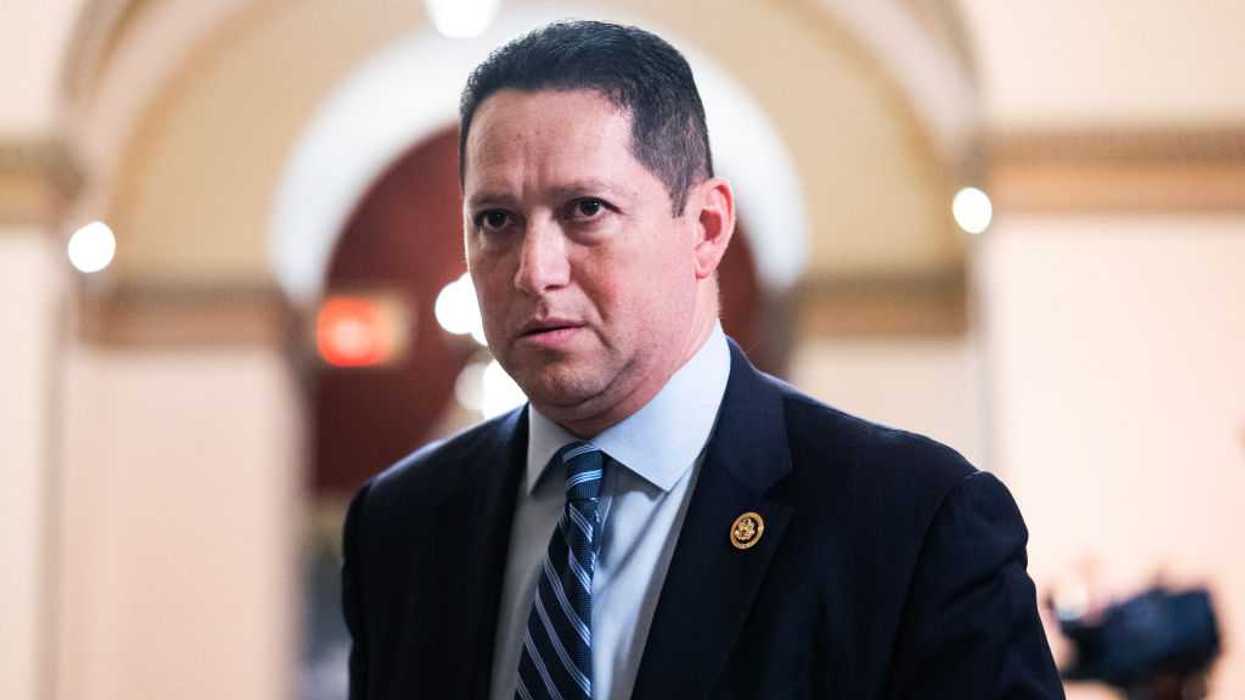With a prison reform bill working its way through Congress, President Donald Trump gave the effort a significant boost Friday by asking Congress to get a bill attacking the issue to his desk, The Hill reported.
The First Step Act recently made it through the House Judiciary Committee last week with a 25-to-5 vote.
"There is no substitute for personal accountability and there is no tolerance for those who take advantage of society's generosity to prey upon the innocent," Trump said. "But if we want more prisoners to take charge of their own lives, then we should work to give them the tools to stand on their own two feet."
What's in the bill?
The House of Representatives is currently considering a bill that is referred to as the First Step Act. The full title is the "Formerly Incarcerated Reenter Society Transformed Safely Transitioning Every Person Act."
"The First Step Act is a prison reform bill that starts to address some of the broken elements of our criminal justice system," Jessica Jackson Sloan, the national director and co-founder of DreamCorps' #cut50 initiative, told TheBlaze.
Sloan and #cut50, an organization that works to promote criminal justice reform, have played a role in the negotiations to move the bill foward.
The bill seeks to reduce the recidivism rate by improving conditions and development opportunities for inmates in federal prisons, allowing them the chance to be job-ready upon their release and lowering the chances that they fall back into the same criminal lifestyle that caused them to be incarcerated in the first place.
"The fact that, right now, when somebody goes to prison, they're not just doing their time, it's a lifelong mark on them that prevents them from being able to find housing, get a job, get an education.," Sloan said. "There's thousands of collateral consequences that really limit a person's ability to succeed."
Here are some of the main goals of the bill, according to #cut50:
- Ban the shackling of women during childbirth and provide sanitary napkins and tampons at no charge
- Increase the number of "Good Time Credit" days prisoners can earn per year
- Accelerate transitions from prison into halfway homes or home confinement when possible
- Require the Bureau of Prisons to place incarcerated people within 500 driving miles of their families
- Allow formerly incarcerated people to serve as volunteers and mentors
- Expand compassionate release for the elderly and terminally ill
What's the problem of recidivism?
Elite Daily summarized the issue of recidivism, citing a study from a few years ago:
"In 2016, the U.S. Sentencing Commission (USSC), an independent agency within the judicial branch which studies federal crime and sentencing policies, found that almost half of inmates released from federal prison in 2005 were arrested again within eight years. Almost one-third of the offenders were also re-convicted, and one-quarter of the offenders were re-incarcerated over the same study period."
Any bipartisan support?
The bill is sponsored by Rep. Doug Collins (R-Ga.), and has 12 co-sponsors including members of both parties, including Democratic Reps. Keith Ellison of Minnesota and Hakeem Jeffries of New York.
Jared Kushner, senior adviser and son-in-law to President Trump, has thrown his support behind the bill, motivated at least in part by personal experience: His father, Charles, spent two years in federal prison, released in 2006.
"This is an issue I had personal experience with, so I spent some time thinking, from the White House, what can be done," Kushner said Friday at a White House event that included a discussion moderated by CNN commentator Van Jones, the founder of #cut50's parent organization DreamCorps.
Potential pitfall?
One issue that could become an obstacle for this bill going forward is sentencing reform. A previous iteration of the bill, which failed, included sentencing reform, an initiative draws more opposition from conservatives.
On the flip side, the lack of sentencing reform in the First Step Act gives some Democrats pause, because they think the bill doesn't go far enough. Sloan emphasized the need to make progress, rather than waiting for a perfect bill that solves everything at once.
"We support sentencing reform," Sloan told TheBlaze. "But the political realities of the moment make it so that we need to do this in two steps. First, we need to address the fact that our prison system is supposed to be rehabilitative, but yet people are coming out and 74 percent of them are ending up right back inside."
Demonstrated success
"We've seen Texas take quite a few of these actions, and actually close prison beds, and while they were doing so, crime actually decreased in the state," Sloan told TheBlaze. "They had addressed some of the serious problems around reentry that were getting in the way of people coming home and succeeding.
"It is the red states that are leading the way," Sloan said.
Alex Gudich, deputy director of #cut50, said Republican states' leadership on prison reform dates back to the Great Recession in 2008, when governors were forced to look at the cost of their prisons and make some changes.
"The number two or three line item on many of these governors' budgets was this exploded prison system," Gudich told TheBlaze. "[Former Texas Gov.] Rick Perry faced this decision, he said 'I've got billions of dollars in costs, and I've got crime on the rise, is there any way we can reduce this?'
Over the last 10 years, Texas has been able to save money, close prisons, and reduce crime by implementing some of these reforms," Gudich said.
Sloan also cited similar results in Louisiana and Kentucky.







